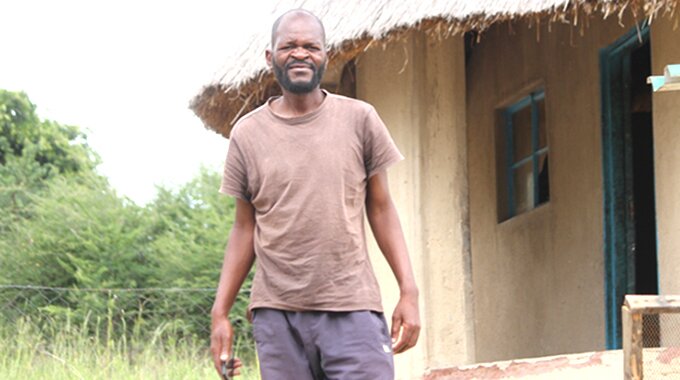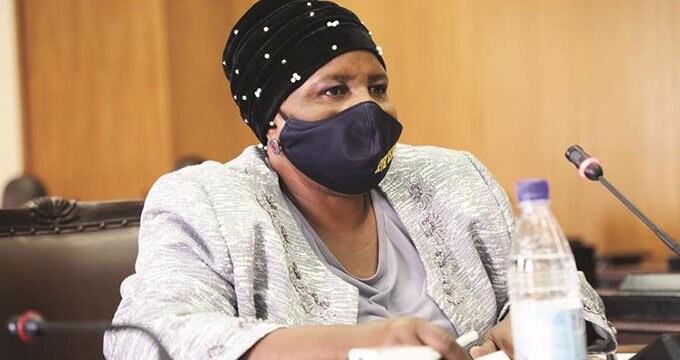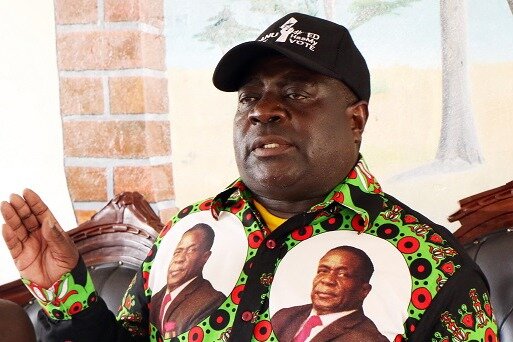Tendai Rupapa
Senior Reporter
Health and Child Care Ambassador First Lady Auxillia Mnangagwa yesterday launched a nationwide reusable pads project as part of measures to improve menstrual hygiene and boost the living standards of women involved in the sewing project.
The pads will be distributed for free to vulnerable communities, a development that assist some women that had resorted to managing menstrual flow with newspapers, old rags, grass, tree leaves and cow dung in some cases.
Health experts say challenges with accessing proper menstrual hygiene diminishes the social status of women and girls, restricts mobility and affects their ability to participate in everyday activities.
Advertisement
Given the multiple challenges women and adolescent girls face, it was evident that promoting menstrual hygiene management was not only a sanitation matter, but an important step towards safeguarding the dignity, bodily integrity and overall life opportunities for women and girls.
It is against this background that the First Lady, through her Angel of Hope Foundation in partnership with the Church of Jesus Christ of Latter-Day Saints, has stepped up efforts to end the plight of girls.
The goal of the partnership is to provide economic opportunities for women embarking on the sewing project.
The First Lady, who is passionate about women empowerment, sought tailors across the provinces and by so doing, created employment. They made thousands of reusable pads, which the First Lady distributed equally yesterday to all the provinces.
Amai Mnangagwa said menstruation was a normal and healthy biological process that girls and women must experience for normal reproduction process and for child-bearing purposes.
Talking about menstruation was considered taboo in local culture, hence the issue was surrounded by silence and shrouded in myths, the First Lady said.
“For this reason, many girls are not prepared and not aware about menstruation when they experience their first period,” she said.
“Limited access to water, sanitation and hygiene services, particularly in public places, schools, place of work or even in health institutions is another major obstacle to women and girls.
“As a result, girls and women end up preferring to manage menstruation at home. It means that they are unable to participate in cultural, educational, social and income-generating activities during the days when they are having their periods on a monthly basis.”
The First Lady said while the launch of the project was a great step forward, a lot more still needed to be done.
Advertisement
Paying tribute to Government for providing tax relief on all menstrual products to make them affordable, she voiced concern that prices for the products continued to skyrocket owing to lack of accountability structures that ensure the business community was responsible enough by making sanitary products affordable.
Menstrual health management was key in achieving the sustainable development goals of good health and well-being, clean water and sanitation, and responsible consumption and production in addition to the programme of action of the International Conference on Population and Development.
“It is also essential for the advancement of the African Union Agenda 2063, which is also a key element in implementing the global strategy for women’s, children’s and adolescent’s health 2016-2030,” said the First Lady.
“Zimbabwe is among countries that have been taking an active role in these initiatives, which shows great commitment and intention by the country on menstrual health management. In many contexts, women and girls lack access to basic materials, such as sanitary pads, cloths and underwear that is needed to manage monthly blood flow.
“Zimbabwe, having experienced and is still in illegal sanctions, experiencing droughts, natural disasters like Cyclone Idai and now the global pandemic on Covid-19, is among those countries that are facing these economic challenges that have undermined the country’s ability to adequately support girls and women’s reproductive health needs.”
Some of the challenges being experienced by girls and women include lack of privacy while in transit, in camps or informal settlements, lack of access to period friendly toilets, lack of access to water and places to wash and dry reusable pads and cloths, besides adequate disposal facilities of used materials.
It is against this background that Angel of Hope Foundation engaged the Church of Jesus Christ of Latter Day Saints to assist marginalised women.
The First Lady also engaged Ministers of State, Members of Parliament and women from across the country to start the project.
She said: “They worked tirelessly and passionately towards the success of this project. The major aim of our efforts was to fulfil the major principles of Angel of Hope Foundation, which are: to support disadvantaged women and youth in gaining resources they need to be income secure and earn a dignified life and to respond to communities by addressing both economic and social vulnerabilities to enable them to cope with economic demands in life.”
Angel of Hope Foundation also seeks to support vulnerable populations in accessing health products and services that will enable them to lead healthy lives.
Advertisement
As patron of Angel of Hope Foundation, the First Lady said she handed over sewing machines and accessories for a sanitary production pilot project in different parts of the country. So far, they have covered Matabeleland North, Midlands, Manicaland, Masvingo and Mashonaland East to empower girls and women.
The project would cascade to all provinces.
The United Nations has highlighted that the cost of sanitary wear was high on the continent and that one in 10 girls in Africa missed school during their period, the First Lady said.
“Here in Zimbabwe, it is estimated that a girl needs as much as the equivalent of US$2 per month to buy sanitary wear every month, yet not all families can afford this,” she said.
“Therefore, pads should be readily accessible and affordable to all women and girls.
“It is, therefore, imperative that all our communities, development partners, business sector and other interested parties cooperate in providing a holistic approach to menstrual hygiene management.”
Representing the church’s General Authority Africa West Area presidency Mr Edward Dube said: “The reusable sanitary wear is a social enterprise project that solves a problem of menstrual absenteeism.
“This is when lots of girls who are affected by poverty miss school during their periods because they cannot afford to buy pads. Fearing embarrassing leaks, they stay home from school, miss out on education and in some cases drop out of school, thus throwing them deeper into poverty.
“This is a real issue for adolescent girls in some parts of our country and we are very pleased to partner with Angel of Hope Foundation in addressing these social issues.”
Women’s Affairs, Gender, Community, Small and Medium Enterprise Development Minister Sithembiso Nyoni in a speech read on her behalf by her deputy Jennipher Mhlanga thanked the First Lady for bringing to national attention the importance of menstrual hygiene and making available sanitary wear.
“Those in the marginalised and hard to reach areas find it difficult to afford or access the sanitary wear, therefore, this initiative on reusable pads by Amai offers a long lasting solution,” she said.
“Lack of it presents a number of challenges to the girls.”
Ministers of State for Provincial Affairs and Devolution Oliver Chidawu of Harare, Dr Ellen Gwaradzimba of Manicaland, Ezra Chadzamira of Masvingo, Aplonia Munzverengwi of Mashonaland East, Larry Mavima of Midlands and Richard Moyo of Matabeleland North praised the First Lady for coming up with the reusable pads initiative.
Minister Chidawu said by coming up with the project, Amai Mnangagwa, continued to work towards addressing health issues affecting women and young girls.
Dr Gwaradzimba, who was represented by Buhera West MP, Saul Nzuma, also echoed similar sentiments and paid tribute to the work being done by the First Lady in addressing issues affecting the womenfolk.
Minister Chadzamira said vulnerable girls in homes will be the beneficiaries of the pads in his province. He thanked the First Lady for the project, adding that he was humbled by her hard work and commitment towards uplifting the lives of vulnerable communities countrywide.
Minister Munzverengi praised the First Lady for providing for the welfare of the vulnerable.
“You are a mother to everyone and you care for the health of your vulnerable children and take care to know how they are managing their menstrual hygiene,” she said.
Mutsa Chivavaya, a Form 6 student from Svosve district, was excited at the launch of the reusable sanitary wear project, adding that missing school for young girls would be a thing of the past.
She described the First Lady as an angel of hope to rural communities.
– HERALD








